The list of top ten brands of Blue Mountain Coffee introduces which brand of Blue Mountain Coffee beans is the best.
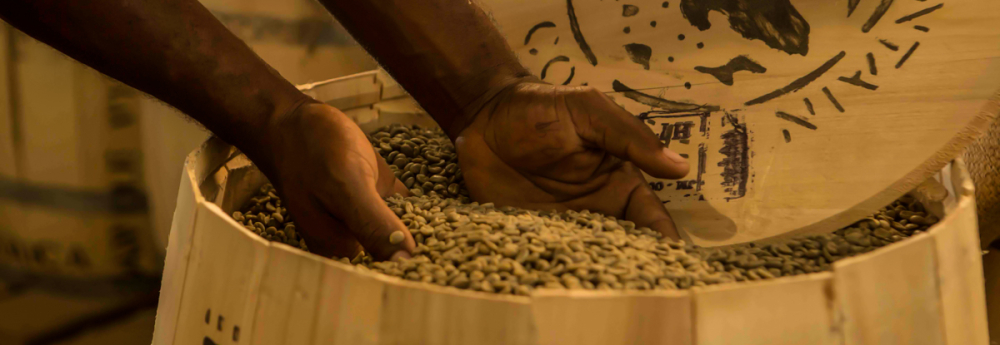
Before the concept of boutique coffee entered the public awareness, the market was dominated by rich and mellow bitter coffee. At that time, Blue Mountain Coffee stood at the top of the coffee industry with its extraordinary popularity. Whenever we choose coffee beans, Blue Mountain is at the top of the list.
How did Blue Mountain Coffee become "red"?
The Blue Mountain Coffee in Jamaica is famous all over the world because of its excellent natural environment. Before the 1960s, Jamaican coffee beans were very popular in the entire coffee market.
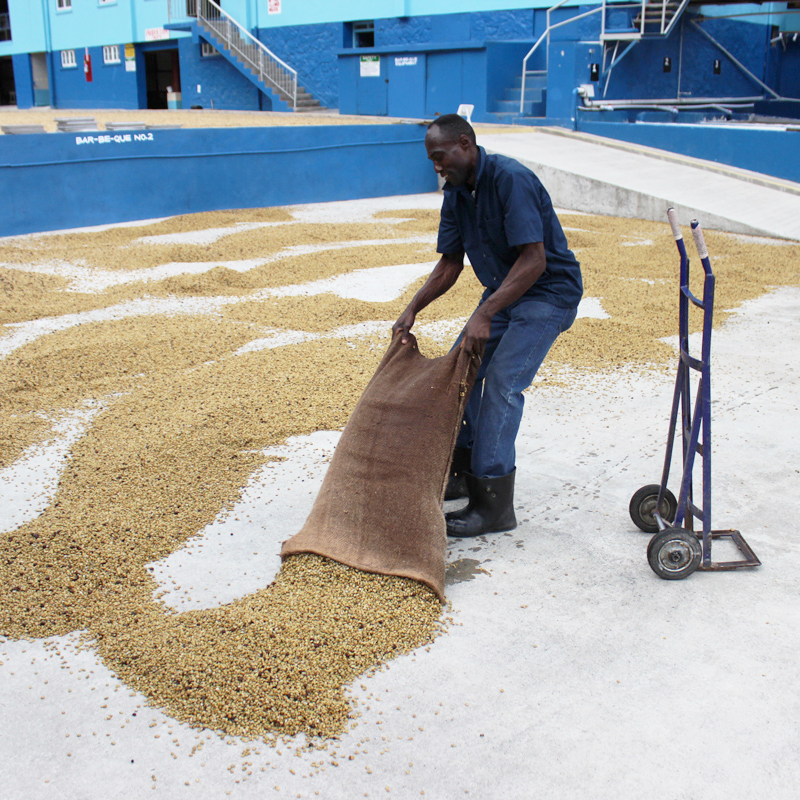
In 1969, when the whole island of Jamaica was seriously affected by the hurricane disaster, the Japanese company UCC not only provided financial help to Jamaica, but also introduced a scientific ecological planting method to restore the cultivation of Blue Mountain coffee. To thank Japanese companies for their assistance, the Jamaican government signed a 30-year contract with Japan, promising to supply 90% of the production quota of Blue Mountain coffee to Japan, and the remaining 10% of about 245 tons to be sold in other markets. As the saying goes, scarcity is precious. The output of Blue Mountain coffee is low in nature, and it is also monopolized by trade. The demand side is frantically marketed by Amway, and the price naturally rises.
In fact, during the period of signing the agreement with Japan, Blue Mountain Coffee was not completely consumed locally, and they will sell some of it to other countries and regions in Asia at high prices. Coupled with the increased publicity efforts of the Japanese, coffee makers in many neighboring countries have also begun to pursue Blue Mountain Coffee, such as Singapore, South Korea, Taiwan, and Hong Kong, China. Over the past 2000 years, the "Blue Mountain craze" has gradually begun to spread to China, so when we mention coffee to our elders, they always think of the name "Blue Mountain" for the first time.
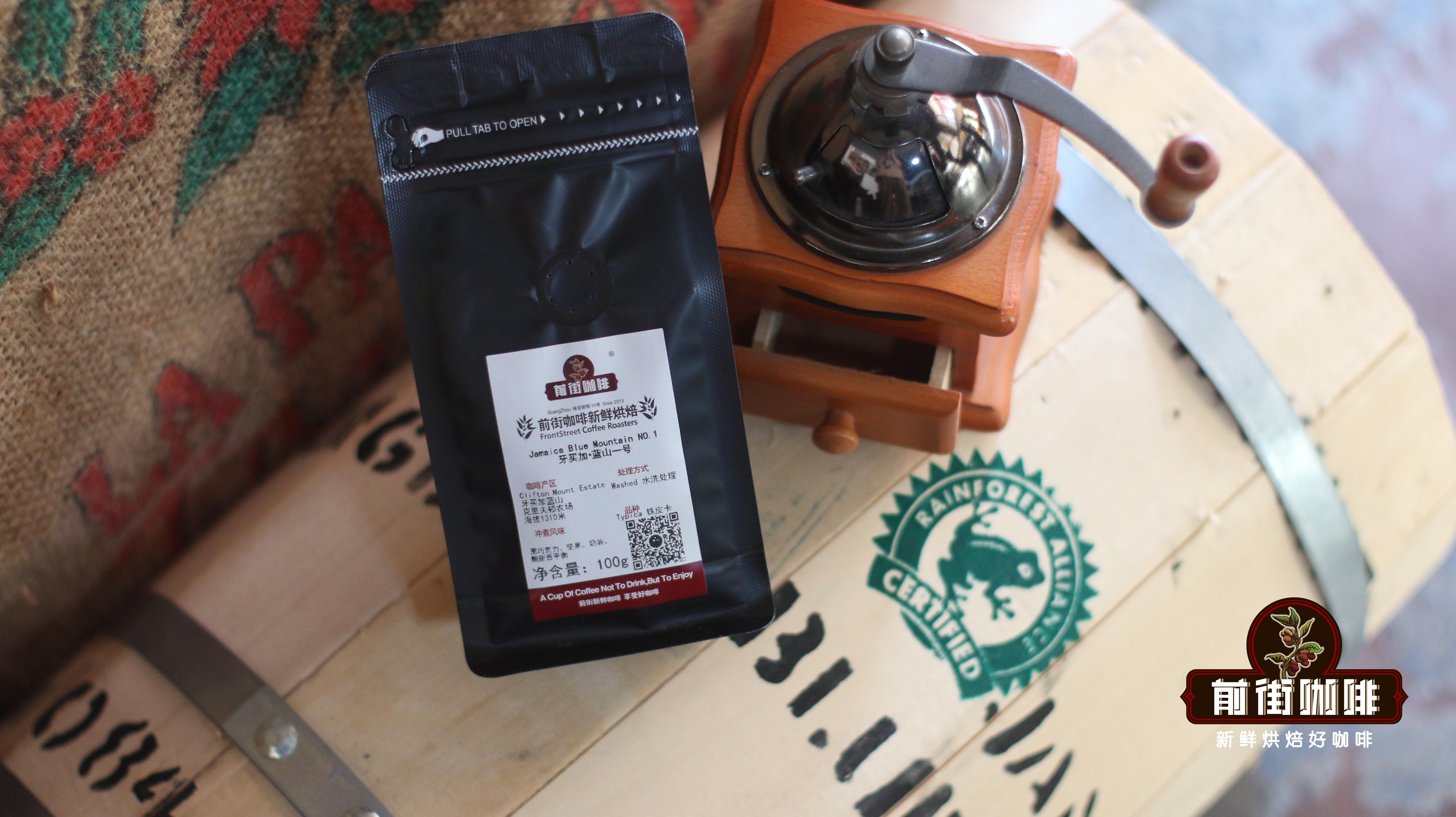
During the global economic crisis in 2008, Jamaica tried to sell Blue Mountain Coffee to more countries, and its agreement with Japan expired, allocating more of Blue Mountain Coffee to other countries. With the expansion of Chinese coffee market demand, many Chinese merchants have been able to import blue mountain coffee beans directly from Jamaica. The Jamaican Blue Mountain No. 1 coffee on the front street is produced by the historic Clifton Manor and is treated with traditional washing.
≠ Blue Mountain Coffee
As mentioned above in Qianjie, the reputation of Blue Mountain, coupled with the high price is difficult to obtain, there are not a small number of genuine and fake products on the market, and all kinds of shoddy coffee introducing the word "Blue Mountain" can always mislead consumers. For example, we often see on the shopping platform: blue mountain flavor, blue mountain matching, blue mountain mixing. They are all named as the Blue Mountains, but they are far from the true Blue Mountains.
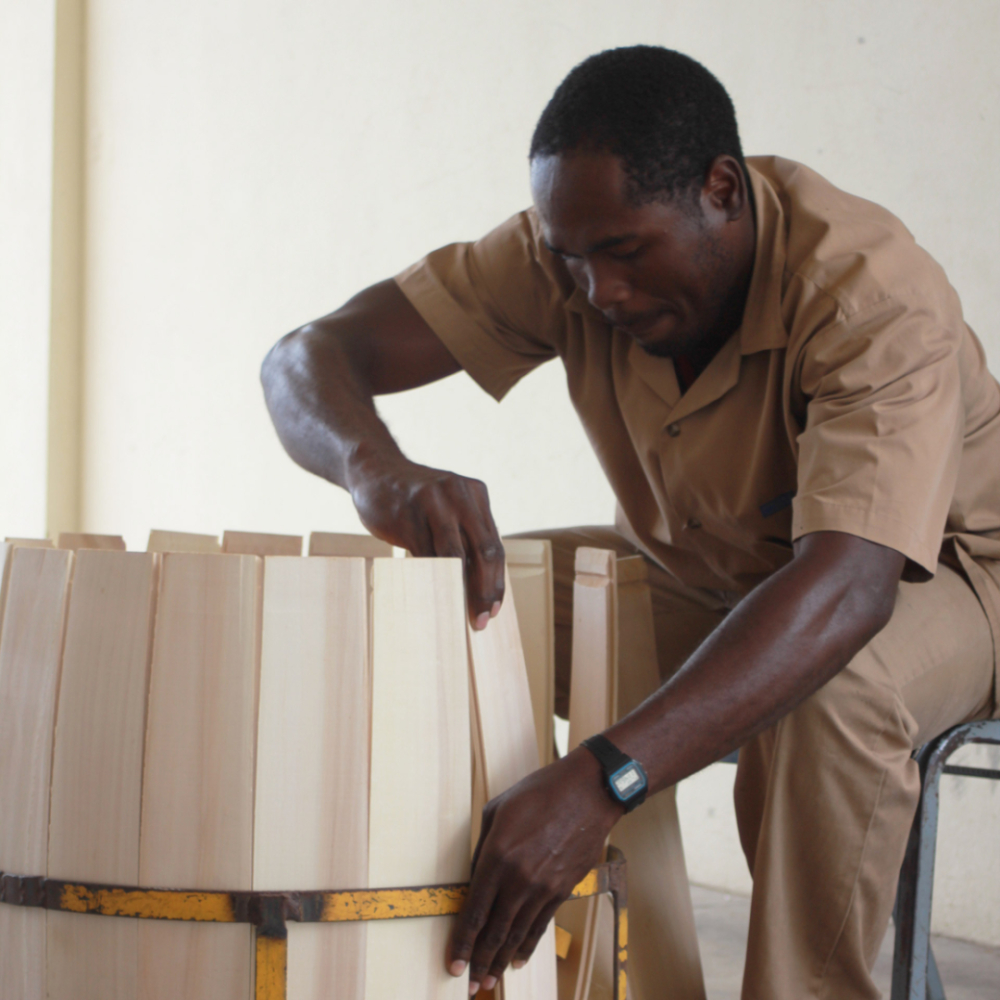
Can be praised as the best coffee in the world, presumably will not be too cheap, so the price of dozens of yuan "blue mountain beans" can hardly be the real thing. As consumers, we can identify whether the merchant has handmade oak barrels to transport blue mountain raw beans. Jamaica is the only producing area in the world that uses oak barrels as a carrier for coffee transportation. compared with coarse sacks, oak barrels have the advantage of absorbing and releasing internal and external humidity, isolating the aroma of coffee and keeping coffee beans with a more stable moisture content. make roasting more stable. Later, the barrel also became one of the signs to identify authentic Blue Mountain Coffee.
In addition, the production and distributors of Blue Mountain Coffee must be licensed by the Jamaican Government and authorized by the Jamaican National Coffee Agency, and all local Blue Mountain batches are also tested and certified by the Coffee Bureau with its label. Therefore, we can ask the merchant to show the relevant blue mountain certificate to identify whether it is the real blue mountain. The Blue Mountain No. 1 coffee on the front street is produced by Clifton Manor and has a certificate of quality issued by the Jamaican Coffee Bureau, an authorized sales certificate issued by the Blue Mountain Coffee manufacturer, and a certificate of origin of Jamaican Blue Mountain Coffee. Oak barrels containing blue mountain beans are also displayed in the Dongshankou store.
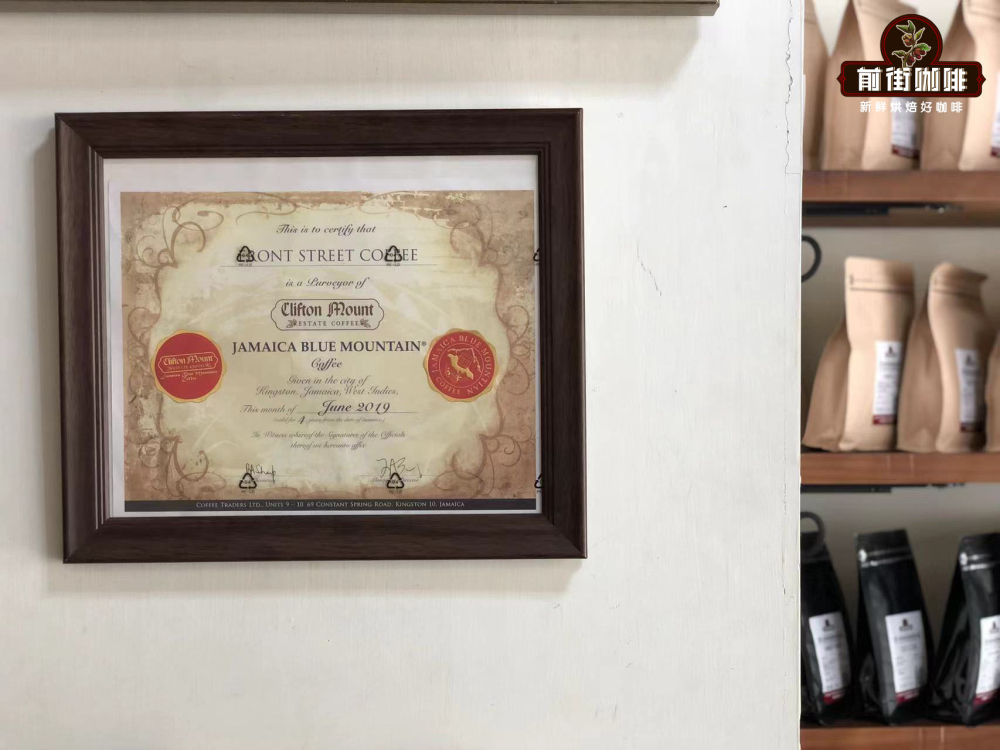
Which grade of blue mountain coffee beans is the best?
If we confirm that the blue mountain coffee beans we bought are authentic, I believe everyone will want to drink the highest grade of blue mountain coffee. After all, the higher the grade, the better the flavor.
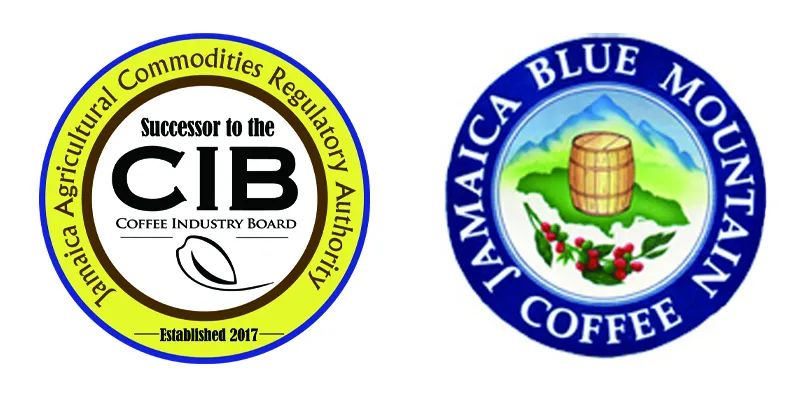
The grading of Blue Mountain Coffee is inspected and certified by the Coffee Industry Committee of Jamaica (CIB). In the quality control of raw beans, CIB standardizes the cultivation, output and sales of Jamaica Blue Mountain Coffee, thereby improving coffee quality, standardizing coffee production and processing procedures, and coordinating the sale of Blue Mountain Coffee in the market. CIB is also responsible for the grading and quality testing of coffee produced in the Blue Mountains. In other words, Blue Mountain Coffee sold all over the world must be certified by CIB and carry its label.
Compared with other coffee producing areas, Jamaica is the first country to realize the "regional flavor" of coffee. The criteria for evaluating the quality of blue mountain raw beans cover a number of areas: raw bean size, defect rate, color, evenness, cup test performance after roasting (including dry aroma, wet aroma, acidity, flavor, alcohol thickness, cleanliness, etc.) and other factors. The size of the beans will use a variety of aperture sieves, coffee beans that do not pass through the hole are in line with the specifications used. The evaluation of color includes naked eye observation and colorimeter reading, with turquoise as the highest grade.
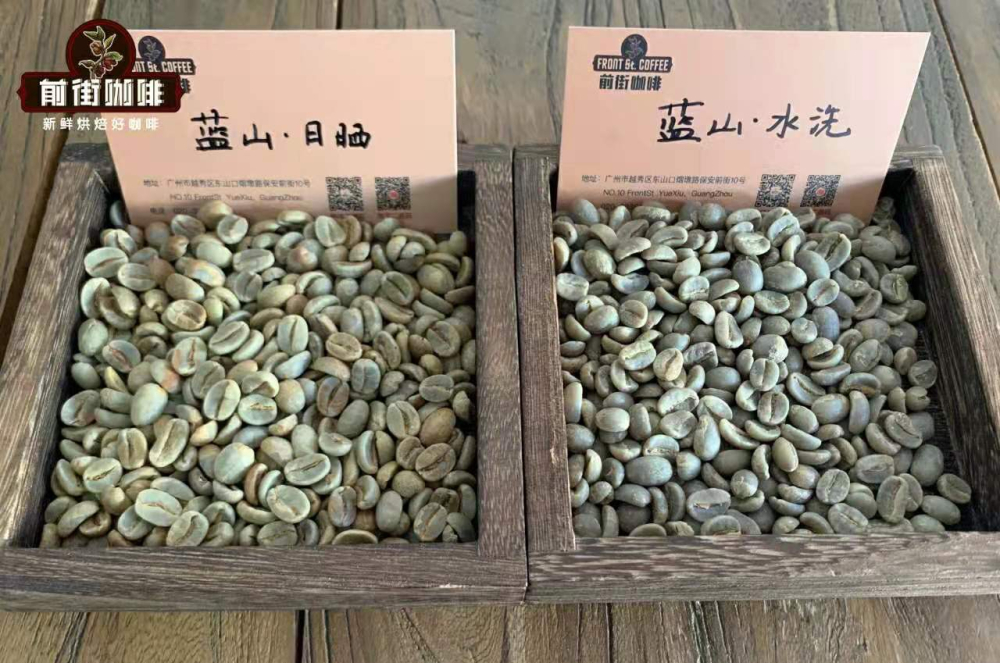
According to the above standards, Blue Mountain Coffee is divided into four grades, from high to low: NO.1, NO.2, NO.3 and PB, which are translated as Blue Mountain 1, Blue Mountain 2, Blue Mountain 3 and Blue Mountain Dou. The top Lanshan No.1 raw bean must meet the specification of more than 17 mesh, the defect rate is less than 3%, the moisture content is about 13%, and the cup test shows rich coffee aroma, smooth, balanced taste, low weak acidity and long-lasting.
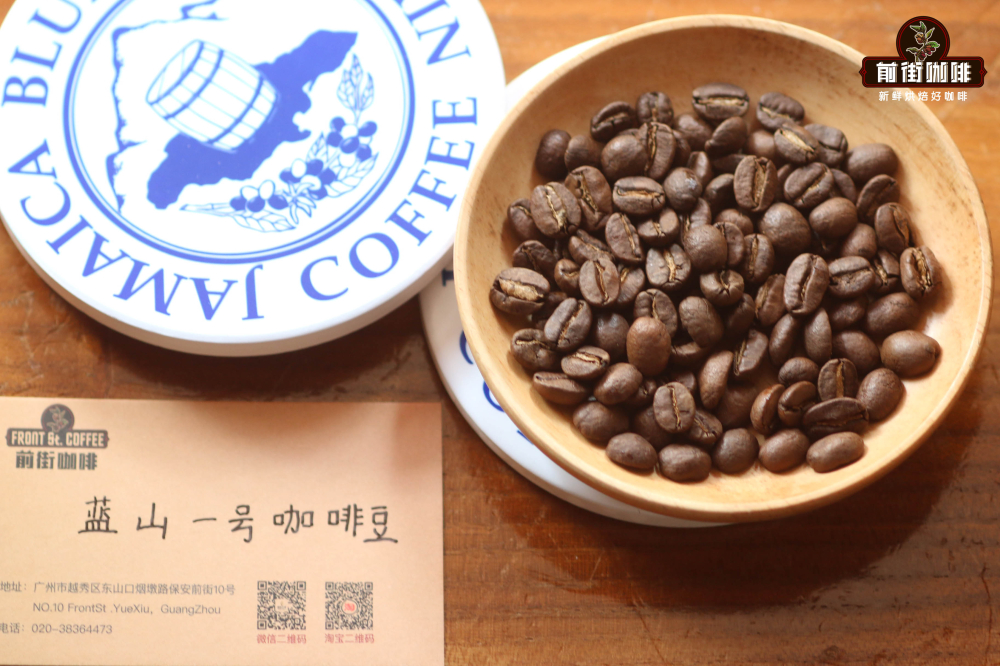
Suggestion on brewing coffee No. 1 in Qianjie Blue Mountain
Qianjie hopes to highlight the mellow and round taste of Blue Mountain No. 1 coffee, which will be extracted with KONO coffee filter cup. KONO's ribs are less than half the height of the filter cup, and this design is actually designed to ensure that the filter cup is wet and close to the wall of the filter cup to limit the airflow, which will increase the water absorption time of coffee powder particles and make the extracted coffee more uniform as a whole.
Cooking parameters: 15g powder, powder / water ratio 1:15, grinding degree: EK43s scale 10.5 (China 20 standard sieve rate 75%), water temperature: 87g 88 ℃, cooking technique: staged extraction.

Place the filter paper in the KONO filter cup and fill it with water to wet the filter paper and make them fit better. Pour in the coffee powder and gently pat to distribute the powder evenly. The first stage is gently injected with 30 grams of water for steaming for 30 seconds, and the second stage is injected with about 125 grams of water to circle evenly and smoothly outward. Then wait for the coffee liquid to drop, drop to half, inject the last section of water to 225 grams, wait for the coffee to fall behind, the general total extraction time is about 2 minutes.
The hand-brewed Blue Mountain No.1 coffee is dark chocolate and nuts, which is very mellow and has obvious almonds. As the temperature drops, baked hazelnuts, creamy and smooth, with a hint of soft acidity and caramel sweetness, the aroma lingers in the mouth.
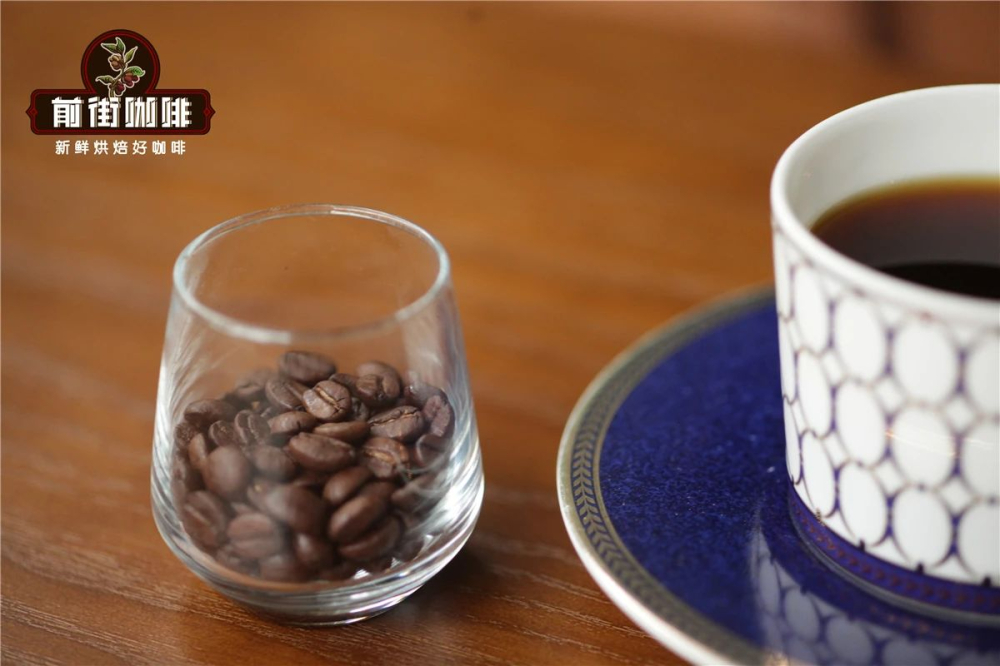
Professional coffee knowledge exchange more coffee bean information please follow the coffee workshop (Wechat official account cafe_style)
For more boutique coffee beans, please add private Qianjie coffee on Wechat. WeChat account: qjcoffeex
Important Notice :
前街咖啡 FrontStreet Coffee has moved to new addredd:
FrontStreet Coffee Address: 315,Donghua East Road,GuangZhou
Tel:020 38364473
- Prev
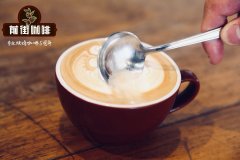
Is the Blue Mountain of Qianjie Coffee good? the characteristics of Qianjie Coffee Blue Mountain Coffee
Professional coffee knowledge exchange more coffee bean information please pay attention to the coffee workshop (Wechat official account cafe_style) 1) the limited quantity of this kind of coffee is not the kind of coffee you can go to the local supermarket to buy a bag of coffee at any time. The supply of Jamaican Blue Mountain Coffee is very limited and it is very difficult to find it in the first place. Needless to say, like all rare commodities, Jamaica
- Next
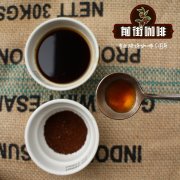
Introduction of authentic Blue Mountain Coffee Brand which Blue Mountain Coffee has a good flavor and taste
Professional coffee knowledge exchange more coffee bean information please follow the coffee workshop (Wechat official account cafe_style) front street Jamaica Blue Mountain Coffee Brand-Clifton Manor introduction to the front street editor today is Jamaica Blue Mountain Coffee-Clifton Manor Jamaica Blue Mountain Coffee World many connoisseurs believe that the aroma, mellow thickness and acidity of Jamaican Blue Mountain Coffee
Related
- Beginners will see the "Coffee pull flower" guide!
- What is the difference between ice blog purified milk and ordinary milk coffee?
- Why is the Philippines the largest producer of crops in Liberia?
- For coffee extraction, should the fine powder be retained?
- How does extracted espresso fill pressed powder? How much strength does it take to press the powder?
- How to make jasmine cold extract coffee? Is the jasmine + latte good?
- Will this little toy really make the coffee taste better? How does Lily Drip affect coffee extraction?
- Will the action of slapping the filter cup also affect coffee extraction?
- What's the difference between powder-to-water ratio and powder-to-liquid ratio?
- What is the Ethiopian local species? What does it have to do with Heirloom native species?

